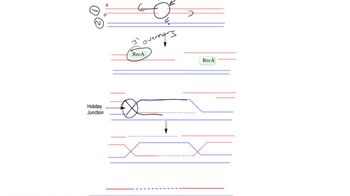If the haploid number for a plant species is 4, how many chromosomes are found in a member of the species that has one of the following characteristics? Explain your reasoning in each case.
Octaploidy
 Verified step by step guidance
Verified step by step guidance Verified video answer for a similar problem:
Verified video answer for a similar problem:

